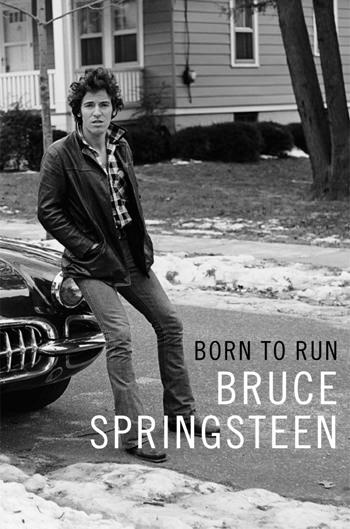“Born to Run” (Simon & Schuster), by Bruce Springsteen
Bruce Springsteen’s life is now officially an open book.
The autobiography “Born to Run” takes readers on a riveting ride through the everyman rock star’s deeply lived existence.

Springsteen, who scrawled his story in longhand over seven years, begins with an exquisitely detailed child’s-eye view of his 1950s working-class neighborhood. He weaves an American Land tapestry populated with his colorful Irish-Italian family. Then come the musical musings:
— Young Bruce, “on fire” after seeing Elvis on TV, quickly chafed at “stupendously boring” music lessons. “I still can’t read music to this day.”
— Once, in his early band, the Castiles, “we were being spat on, literally, way before it was a punk badge of honor.”
— Mature Bruce worked to capitalize on his strengths while compensating for imperfect vocal tone.
— Among the bucket moments: realizing a “teenage daydream” while playing with Mick Jagger and Keith Richards.
Springsteen’s California phase yielded picture-perfect landscape descriptions, though readers will spend more time hanging out in — no surprise — a different state.
Gauzy, dreamlike photos inside the covers depict a vanished era in Asbury Park, New Jersey, the hugely symbolic seaside city of Springsteen’s formative musical years. In one, a Ferris wheel stands proud behind the historic Palace Amusements building.
Readers may need to buckle up for parts of this 508-page spin. He contemplates some deeply personal topics as a way of providing context for his art.
Springsteen, 67 — who had an integrated band back when that wasn’t always popular — reveals what he wishes he’d said after the beloved Big Man was subjected to a sickening racial slur. He also shares the heart-wrenching hospital scene when Clarence Clemons drew his last breath.
Then he candidly discusses his own harrowing health battles.
After scary surgery, he defied doctors’ orders and crowd-surfed in Australia.
Quitting his longtime antidepressants prompted crying jags: “‘Bambi’ tears. … ‘Old Yeller’ tears. ‘Fried Green Tomatoes’ tears … ‘I can’t find my keys’” tears. He broke down at the beach and was comforted by “a kindly elderly woman walking her dog.”
“It would’ve been funny, except it wasn’t.”
His wife and new medication pulled him out of the mental abyss that his father had also known all too well.
The salted wounds are soothed with sweetness: snapshots of his Growin’ Up family, and the one he created with the musician Patti Scialfa.
With Scialfa’s guidance, he learned to reconnect amid the musician’s life: padding into the kitchen overnight to get milk for their littlest one, then tucking him in with a story; learning to make pancakes for their brood.
Over time, he realized that “a song will always be there for me.”
But “your children,” he says, “are here and gone.” (AP)




